Serendip is an independent site partnering with faculty at multiple colleges and universities around the world. Happy exploring!
Science Fiction and the Multi-Genreverse of Doom

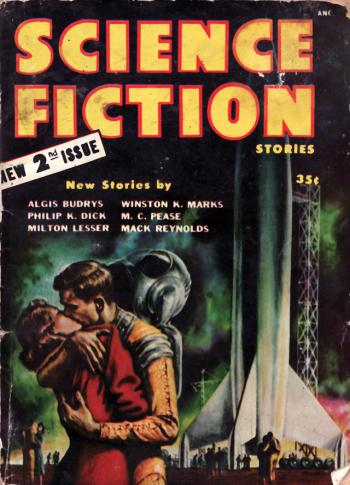
This is not just about Star Wars, Dune, or exploding spaceships. This is not just about scantily-clad princesses in high-tech towers, Captain Kirk, or the robot apocalypse. Science-fiction is a genre that encompasses almost every other genre there is. It crosses mediums: television, radio, video games, books, graphic novels, comics, movies... It can be about the future or the past, our humanity or lack-there-of, or the comedy or drama or dramatic comedy of our lives.
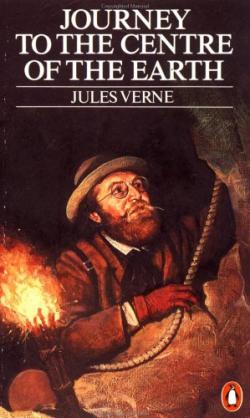

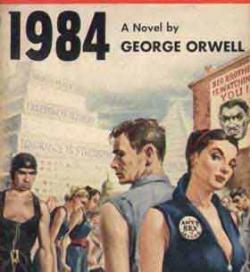

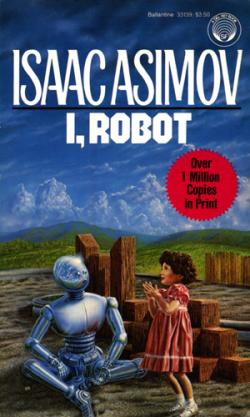
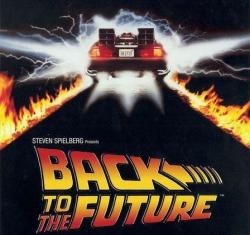
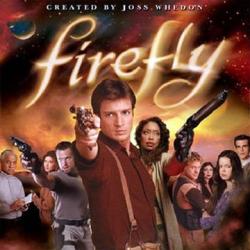
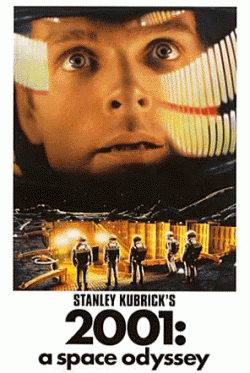
There are epics to short stories, movies to T.V. shows, thousands of choices for study.
Possible Areas for Analysis:
Critical Theory and Science Fiction (book)
Science Fiction (book)
Watch The Skies! (film)
Against Genre/Theory: The State of Science Fiction Criticism (book, you might have to go through Bryn Mawr's website to get to this)
Science Fiction: Its Criticism and Teaching (book)
For the rest of the semester, we could choose to use one of these to analyze other science fiction books or we could look at a single author (I would recommend Isaac Asimov) or compare authors (Asimov vs. Heinlein?) and their most famous works. We could also pick a specific time period, as the film Watch the Skies! does. The evolution of Science Fiction from Pulp Fiction would be more in-line with what we did with blogs.
We would start with 19th century literature and work our way to the 21st century. We would read various selections and essays about the selections and discuss/post about our thoughts. Two possible essay topics for this plan could be:
Explore the literary background of a science fiction piece
What is Science Fiction? Is it like a blog, a medium for other genres to shine through? A genre in itself? Cheap entertainment?
Thoughts? Ideas?



Comments
We've mentioned several times
We've mentioned several times in class that the processes/concepts we're noticing in blogging/on the internet aren't necessarily new, that they're just being made visible by the Internet. Science fiction lets us look through time in a way blogs haven't. I think this has to do with it being a genre-genre rather than a medium, like blogging-- we can trace it and the concepts we've been exploring (remix, thought evolution, how we categorize) through time and various mediums.
My Spanish professor has been pushing an idea that I'm not sure I entirely understand about science fiction's vital importance as a genre. He argues that to create science fiction narratives is to claim a future for oneself, discussing this idea in relation to the almost complete absence of Hispanic science fiction, which he attributes to the difficulty of moving as a social/political group beyond an unhappy past. He holds up rare examples of Hispanic sci-fi as steps towards "decolonizing the future"-- that is, imagining a future for oneself rather than endlessly rehashing the unhappinesses/colonizations in one's history.
And Another Thing...
Science fiction, with its tendency to focus on things non-human (cyborgs, aliens, robots, etc.) and the meaning of being human, would be an awesome place to explore the boundaries of the categories with which we define ourselves. sgb90 and I explored these ideas a little in our essays-- if one can expand one's self or one's capabilities through the Internet or other technology, what does this mean for the concept of self? Science fiction, I think, often tries to get at some kind of essential core meaning/purpose of humanity, and looking at that aspect of it could be a great way to explore the idea of genre itself-- how possible it is or isn't to categorize things by their essential attributes, and what to do about the fuzzy lines that divide the boxes we draw.
20 Minutes After He's Lost the Argument
This actually sounds like it ties in with rachelr's post about identity. This could be a great direction in reviewing this genre.
multi-genreverse (so hard to narrow)
I am really in favor of this idea (as well as some others), and love the suggestions you've made. Unlike the other two 'repliers' I have read science fiction before, and am very interested in perhaps looking at the historical significance and growth of the genre. Perhaps looking at some classics by Isaac Asimov, Philip K. Dick (for example: Do Androids Dream of Electric Sheep? and comparing it with the movie "adaptation" Bladerunner or the related-in-title-and-vague-theme-only The Android's Dream by John Scalzi which is a good example of the modern generic of "sci-fi"), Heinlein, Jules Verne and going even further back to some of original short stories/movies that began the genre (this would take some reading of criticism but I know an influential piece to be Metropolis (a early German movie).
Perhaps we could also look at the idea of parody within the science fiction genre, reading both (or sections of) I, Robot by Isaac Asimov and the short story "I, Rowboat" by Cory Doctorow and other comparisons of this kind.
The Union of Science and Fiction
This genre is personally attractive because it appears, albeit superficially, to bridge the division between the natural sciences and literature. As a biology and chemistry double major with a love of novels, I am often forced to split my time between the two groups. There are texts about the past, present, and future of science on the one hand, and creative writing of the poetry and prose variety on the other hand. Science fiction might be characterized as a handshake between the two. It should be interesting to investigate what higher-level understanding emerges from their interaction.
Science fiction is stories about the future of science, the evolution of a discipline. Reminds me of the Stories of Evolution, Evolution of Stories course, which was an ancestor to our emerging genres course. So a string of associations ties science fiction and our course together?
Some texts that might be interesting to read...
Octavia Butler's Dawn- http://en.wikipedia.org/wiki/Lilith%27s_Brood
Margaret Atwood's Oryx and Crake http://www.amazon.com/Oryx-Crake-Margaret-Atwood/dp/0385721676
re-thinking about the movie Avatar http://www.nytimes.com/2009/12/06/magazine/06FOB-onlanguage-t.html
I have only read one science
I have only read one science fiction novel in my entire life so I would definitely be starting with a blank slate. Normally I would hate that but in this class it seems I am always starting with a blank slate so why not continue the routine. I doubt a large amount of people in the class have a lot of background knowledge on this subject so it would something new we could all explore as a group. This genre, like blogging, is also underrepresented in English classes and in the literary world even though I think it will have a big impact for genres in the future. The more I think about it, the more I like it. Great Idea! I would like to make one suggestion. We could try to read Ender’s Game although I am not sure how high up it is on the literary merit scale.
Post new comment